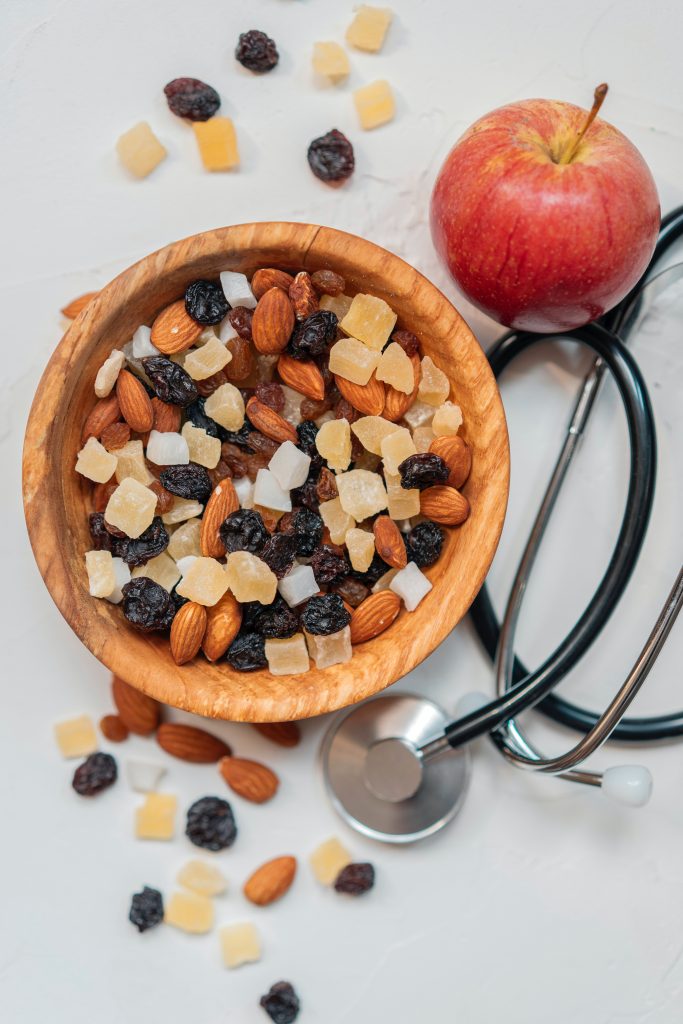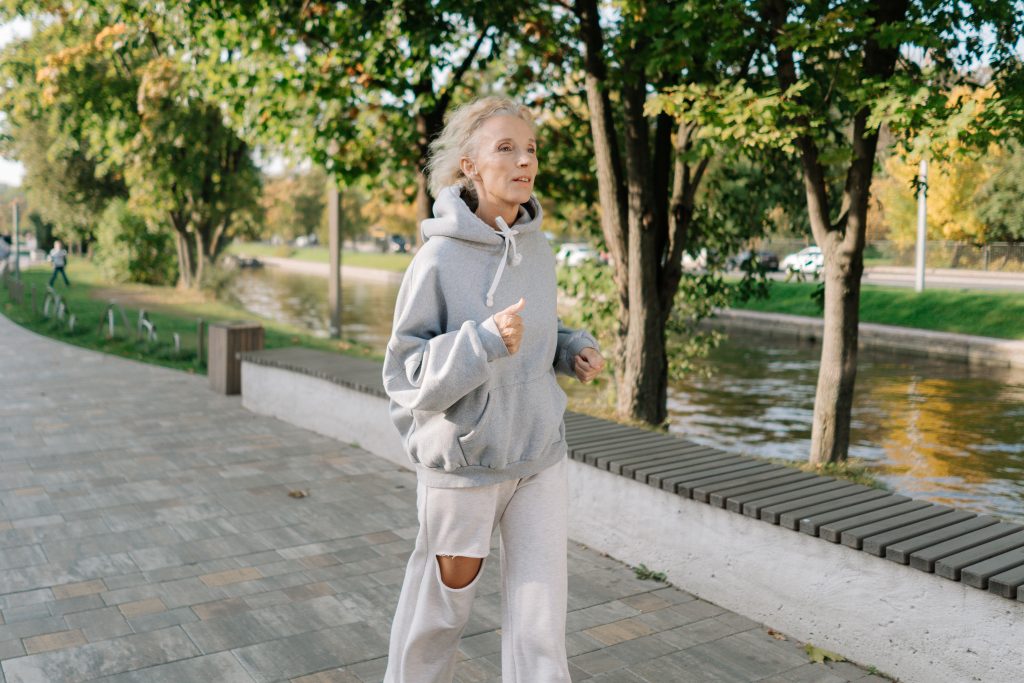
Have you ever wondered about the secrets to healthy aging?
Everybody prays to always be healthy, hopes to grow old, to live long enough to see their children married and carry their grandchildren in their hands.
They pray to live their best lives with their partners, looking back at the good years they had together.
But even though some people do grow old, at times, they realize that they have too many medical conditions than they can count and
become a burden to their children.
Some of them become depressed as a result of the loss of a spouse, or the realization that life as they knew it is not the same anymore.
Nobody wants to grow old and become lability.
I am very sure you want to grow old and still be agile and able to do things without depending on others.
Well, you will not achieve it by just dreaming about it,
You would have to work towards it every day by making intentional daily decisions.
Some of those choices are what I will be discussing in this blog post.
In this blog post, I will be giving you 10 tips for aging healthy, which are;
1. Watch what you eat and drink
If you want to age gracefully, then I suggest you start being intentional about what you eat.

This may sound like a cliche, but when you eat meals that are balanced, you would have good health, and energy and prevent illness.
Do you know that an ideal diet should be low in saturated fat with a huge amount of fruits and vegetables,
inclusive of whole grains, oily fish, and smalll amounts of low-fat dairy and lean meat?
You should never eat a meal without drinking lots of water, this would avoid dehydration, which can definitely make you feel tired and confused.
Taking tea, coffee and fruit juice will also help you to stay hydrated,
But you should definitely avoid sugary fizzy drinks.
If you insist on drinking alcohol, then limit it to 2-3 days a week
This will enable your liver time to recover from the toxic effects of alcohol.
It is advisable that you eat;
A lot of fruits and vegetables
Lean protein which includes fish and beans
Low fat or fat-free dairies such as milk, yogurt, or cheese that are fortified with vitamin D
Foods with healthy fats.
When cooking, it is usually advised that you use oils instead of solid fat.
Also stay away from processed foods, refined sugar, and unhealthy fats.
It is also advisable that you reduce your salt intake in order to keep your blood pressure down.
2. Be Kind To Your Skin
Do you know that your skin is your body’s largest organ?

So if you treat it with care, it can better protect your body from certain harmful toxins.
There are certain routines you must adopt if you are serious about maintaining your skin.
You have to;
Ensure you wear sunscreen and protective clothing when outside
Make sure you get yearly skin cancer screenings
Always stick to gentle products in your anti-aging skincare routine
Stay hydrated
3. Exercise Regularly

When you exercise regularly, you would realize that your risk of falling ill and contracting certain diseases will reduce.
Diseases such as heart disease and cancer will not be a problem for you when you exercise and you will be able to retain mobility longer.
Exercise also lowers stress and improves sleep, skin, bone health, and mood.
It is always recommended that adults are to exercise 2.5 -5 hours or week for moderate-intensity exercise
and 1.25 to 2.5 hours per week of vigorous-intensity exercise or a combination of the two.
Also, muscle-strengthening activities should also be advised, as they will build the muscle and prevent it from sagging in old age.
Engaging aerobic exercises like;
Walking
Swimming
Dancing
Cycling
are very good for the health,
and you should encourage your aging loved ones to focus on activities that include balance training in addition to aerobic and muscle strengthening exercises.
4. Be Active
Staying active is also a great way for you and your aging loved ones to stay healthy.
Living a sedentary lifestyle is always linked to an increased risk of chronic illnesses and early death.
The solution to this is instead of sitting down all day working, you can choose to go on walks, hikes, take vacations and participate in group exercise classes.
5. Live a Stress-free Life
Stress has a lot of negative impacts on the body which range from premature aging and wrinkles to a higher risk of heart disease.

There are many ways to relieve stress, some of which are;
Engaging in relaxation activities like meditation, breathing exercises and Yoga
Exercising
Getting sufficient sleep
Talking to your friend
6. Get sufficient sleep
I cannot emphasize this enough, but getting good sleep is important for your physical and mental health.
It also plays a great role in your skins health.
Ideally, how much sleep you need greatly depends on your age.
Adults over 18 years should aim for seven to eight hours of sleep every night.
Getting enough sleep has over time been proven to;
Lower the risk of heart disease and stroke
Reduce stress and depression
Lower the risk of obesity
Reduce inflammation
Improve focus and concentration
7. Quit smoking and decrease alcohol consumption
Do you know that smoking and alcohol have both been shown to cause premature aging and increase the risk of disease?
I know that quitting smoking isn’t easy, but there are resources available to help you quit.
You can speak to a doctor about how to quit.
As regards alcohol, you should reduce your intake to 2-3 times a week.
8. Find new hobbies
When you find new hobbies, it will help you maintain a sense of purpose and keep you engaged throughout the course of your life.
People who engage in hobbies, leisure, and social activities are happier, experience less depression, and live longer.
9. Drink enough water
When you drink water regularly, it helps to improve your energy and brain function. It is also proven to help keep the skin healthier and reduce signs of aging.
You should always drink water no matter your thirst level, activity level, how often you urinate and move your bowels, how much you sweat, and your gender.
You should always drink a lot of water because it helps to cleanse your system and remove harmful toxins.
10. Take care of your mouth
When you do not take care of your teeth, it not only ages your smile, but also puts you at a risk of gum disease which has been linked to heart disease, stroke, and bacterial pneumonia.
In addition to proper oral care, it is always important to see a dentist regularly.
It is always recommended to brush twice a day, floss once a day, and use a mouth rinse.
Living a healthy life and engaging in healthy activities are things that need to be done regularly to be effective,
So if you have aging loved ones who need assistance in getting around the house, eating healthy, going out and getting chores done,
then we at Lovebird Home Care would be delighted to assist,
We will ensure they live healthy, happy and independent just like they have always wanted.
Our professional home care caregivers will provide assistance with feeding, house cleaning, medications, take them for a stroll, to visit friends,
Keep them company and ensure they are safe at all times. You can contact us by clicking
and we will be delighted to step in and make your aging loved ones life more healthy and peaceful.
Have a great day!






